Cancer Immunotherapy
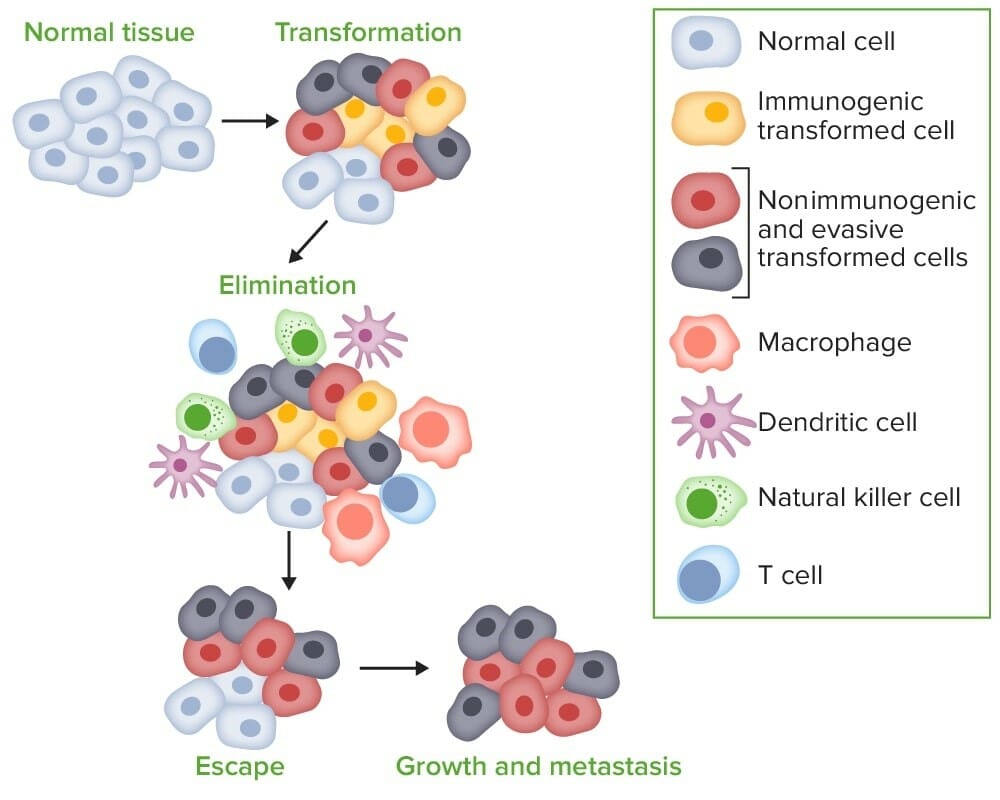
Tumor Immunology Immune system The immune system provides defense (immunity) against invading pathogens ranging from viruses to parasites, and components are interconnected by blood and the lymphatic circulation. The 2 lines of defense (that overlap): Tumor recognition Over 20,000 DNA-damaging events occur each day, which undergo repair via specific pathways, thus causing no lasting effect. […]
Immunoassays
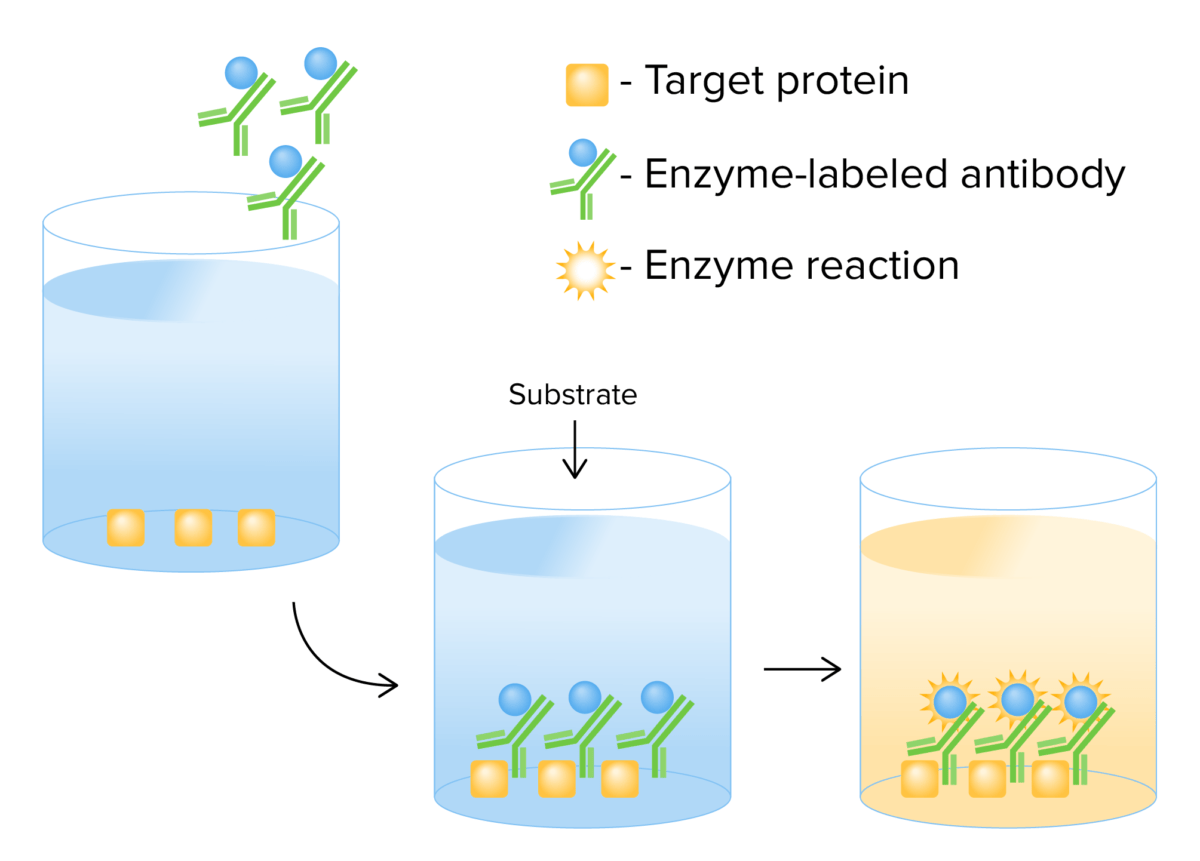
Overview Definition Immunoassays are plate-based assay techniques designed for detecting and quantifying peptides, proteins, antibodies, and hormones. The most crucial element of the detection strategy is a highly specific antibody-antigen reaction. Components Analyte: the molecule of interest (antigen) Antibody: carefully selected for the specific analyte Labels: Molecules that have the potential to conjugate with the […]
Blotting Techniques
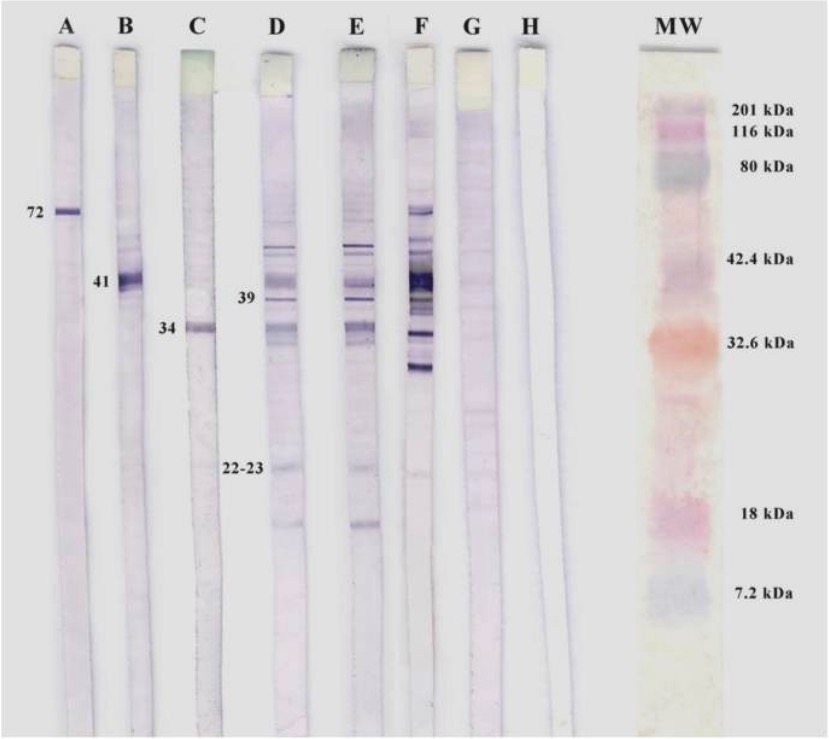
Overview Definition Blotting is an investigative technique used to detect and identify macromolecules, such as nucleic acids and proteins. This technique is accomplished by: Types of blotting The 4 basic types of blotting are Comparison of blotting techniques Characteristics of Southern, Northern, and Western blots Technique Southern blot Northern blot Western blot Target DNA sequences […]
Chromosome Testing
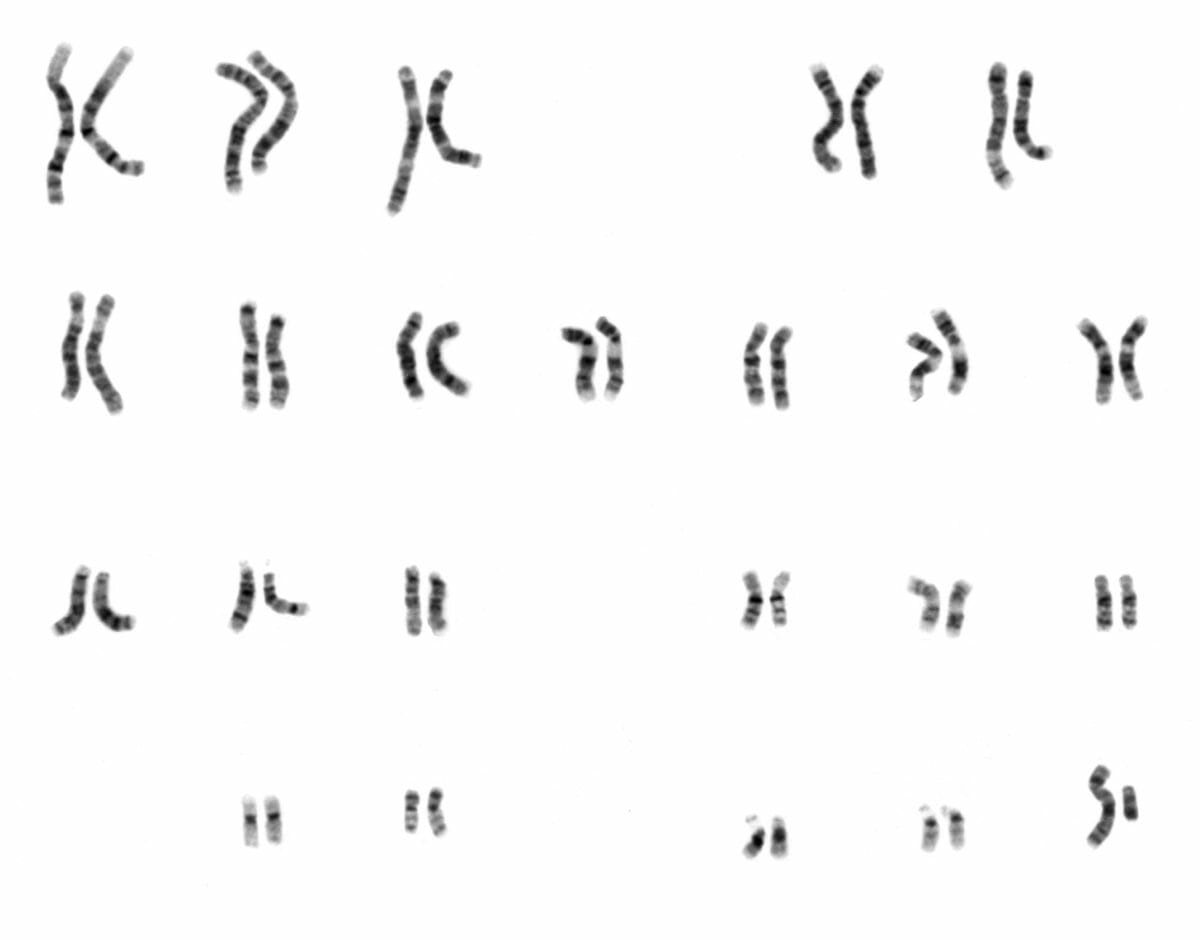
Overview Review of the terminology used in medical genetics Numerical chromosomal aberrations: Structural chromosomal aberrations: Cytogenetic testing Karyotyping Definition Karyotyping, also known as chromosomal analysis, is a common method of producing an image of an individual’s chromosomes to detect: Procedure Uses Karyotyping is useful for identifying and diagnosing: Advantages Disadvantages Chromosomal Microarray Analysis Definition Chromosomal […]
Adaptive Immune Response
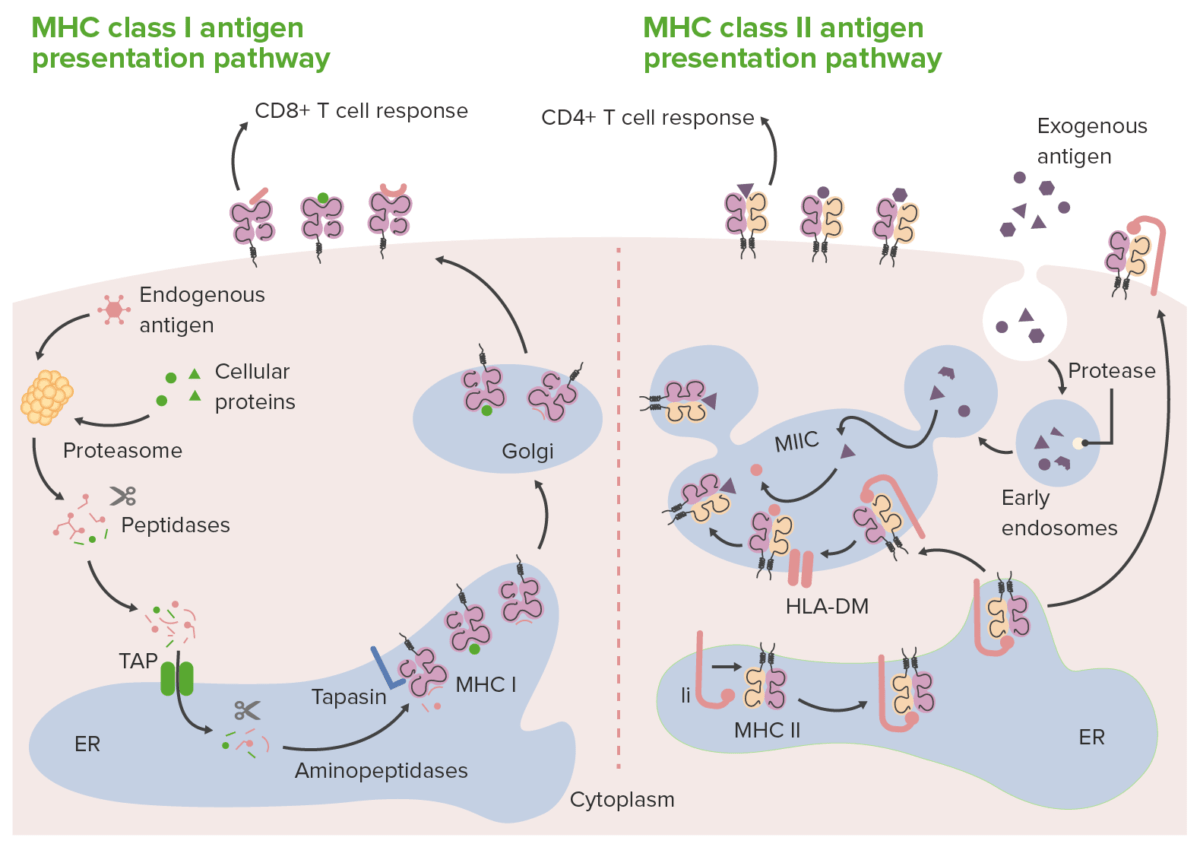
Overview Immune system The immune system provides defense (immunity) against invading pathogens ranging from viruses to parasites, and its components are interconnected by blood and the lymphatic circulation. 2 lines of defense (that overlap): Innate immunity (which is nonspecific) Adaptive (acquired) immunity (based on specific antigen recognition): Cell-mediated immunity: adaptive response in the cells/tissues involving […]
Polymerase Chain Reaction (PCR)
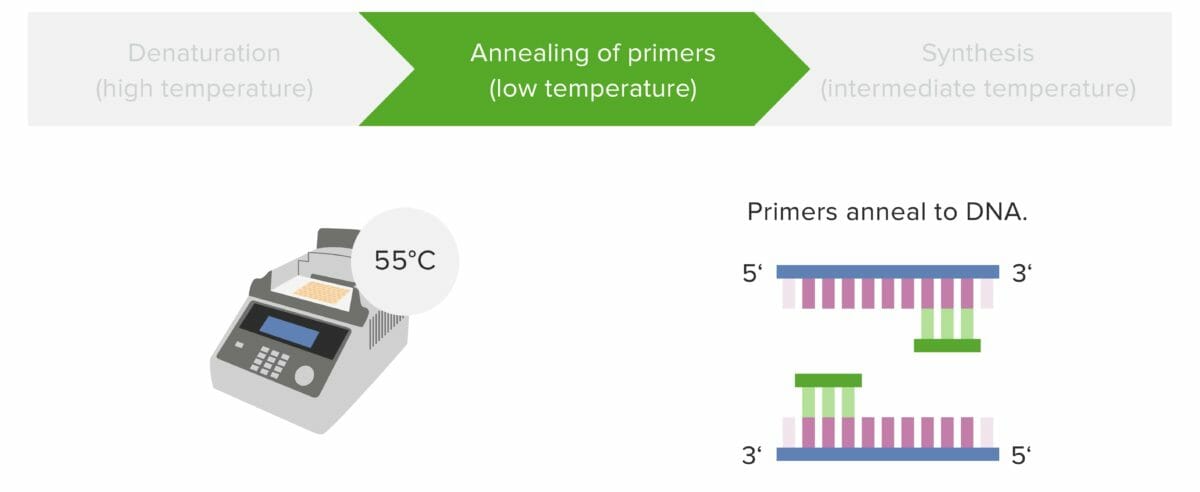
Overview Definition Polymerase chain reaction (PCR) is a technique that amplifies target DNA sequences in vitro and exponentially and is used for diagnosis, virus identification, and analysis. Necessary components Procedure To amplify DNA or RNA, the following stages are repeated in cycles (often up to 30–40 times): Denaturation Annealing of primers Synthesis/elongation Cycles repeat Analysis […]
Organ Transplantation
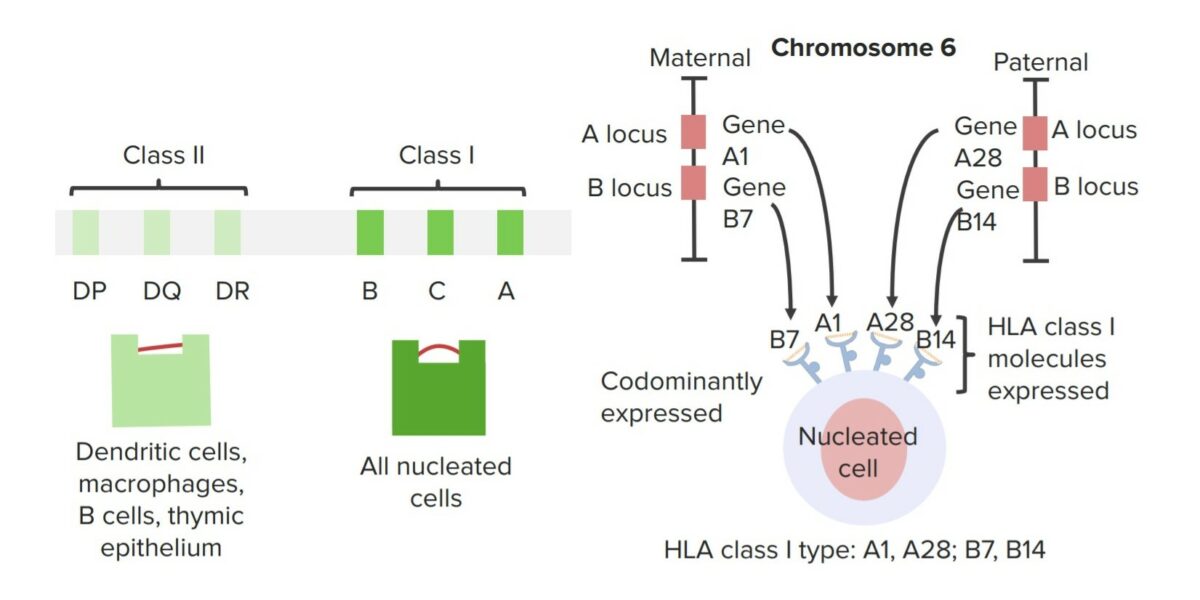
Definitions Transplanted tissue may be cells (e.g., hematopoietic stem cells), tissues (e.g., cornea), parts of an organ (e.g., liver and skin grafts), or entire organs (e.g., kidney, heart). There are many terms that are important to transplant medicine. Immunologic Matching Immunologic matching between an organ donor and an organ recipient is important to improve the […]
Transfusion Products
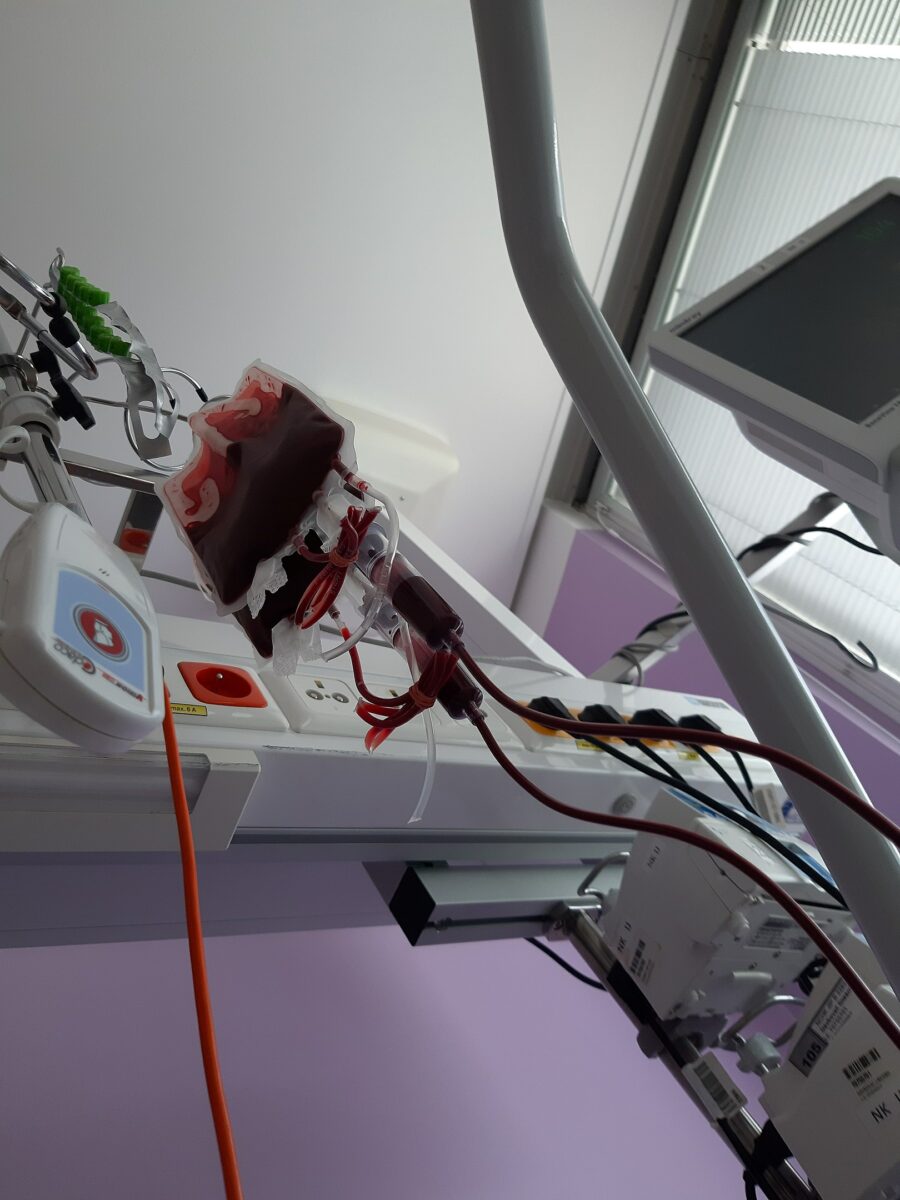
Introduction Table: Blood group compatibility for giving and receiving blood Blood type Can give to individuals with blood type: Can receive from donors with blood type: A+ A+, AB+ A+, A–, O+, O A– A+, A-, AB+, AB– A-, O– B+ B+, AB+ B+, B–, O+, O– B- B+, B–, AB+, AB– B–, O– O+ […]
Blood Group Systems
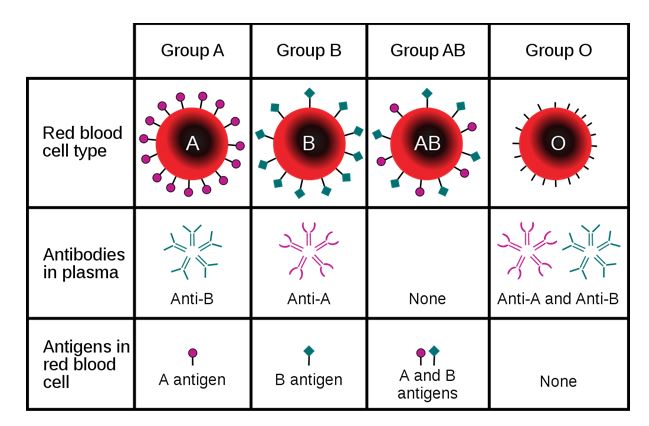
ABO Blood Group Antigens There are 4 common blood groups in the ABO system: A, B, AB, and O. Inheritance Blood-type frequencies vary in different racial/ethnic groups. The ABO blood type is inherited in an autosomal codominant fashion: Table: Inheritance pattern for ABO blood group Mother A Mother B Mother O Father A AA AB […]
Autoimmunity
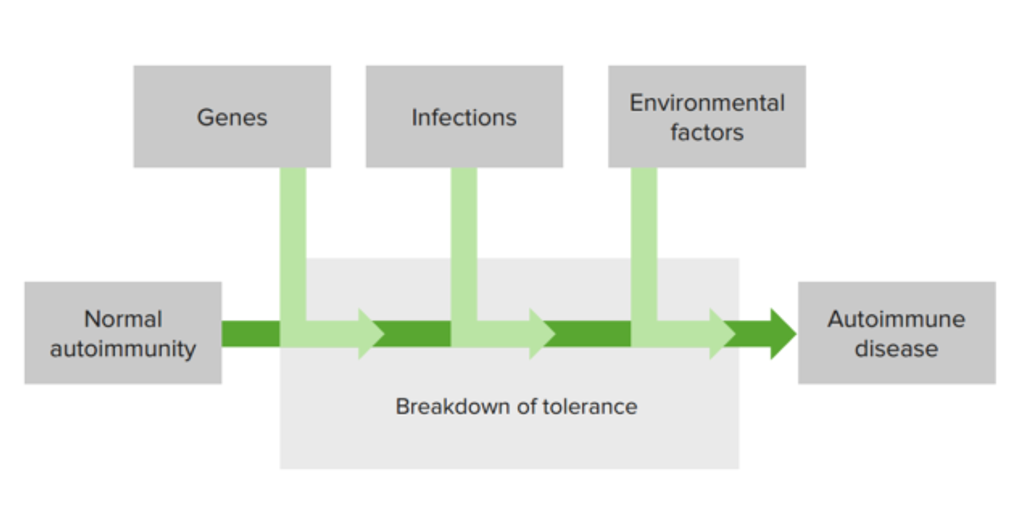
Overview Definition Autoimmunity is the pathologic immune response to self, or against one’s own cells, resulting in inflammation, cell injury, or tissue/organ dysfunction. Epidemiology Immunologic Tolerance The immune system uses lymphocyte activation for defense against pathogens, but at the same time, maintains self-tolerance, which is unresponsiveness to one’s own antigens. Immunologic tolerance is protective and […]